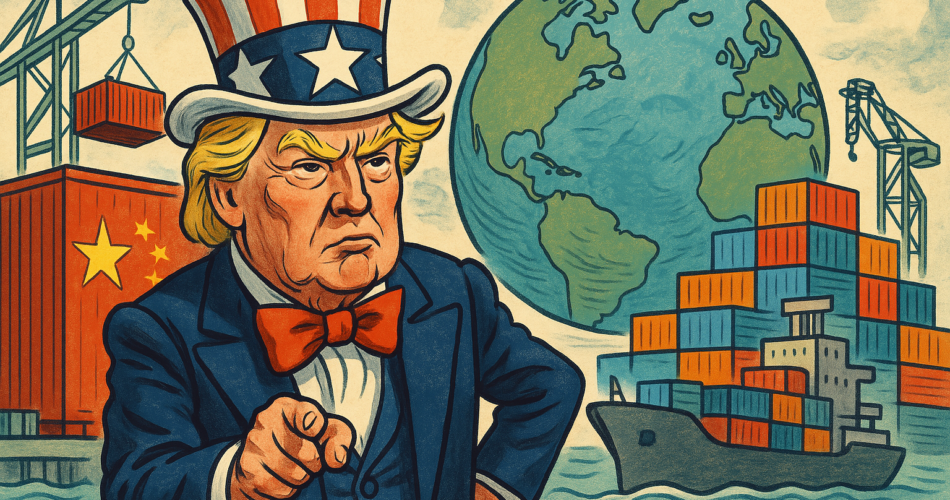We all know about the acerbic relationship that US President Donald Trump has had with the World Trade Organization (WTO). The WTO is the apex trade regulatory body in the world. Recently, President Trump imposed unprecedented tariffs on China and many other countries globally.
However, China is not remaining silent on this issue and, apart from imposing counter-tariffs on the US, China has also raised multiple disputes before the WTO in the year 2025. One of these disputes was raised even before the imposition of tariffs by the US.
The first dispute is titled as “United States – Additional Tariff Measures on Goods from China”, DS633. It was initiated on 05.02.2025 against President Trump’s Executive Order dated 01.02.2025 whereby duties were imposed to “address the Synthetic Opioid Supply Chain in the People’s Republic of China.”
According to China, this action of US Government is in violation of Article I:1 of GATT 1994 that provides for the MFN (Most Favoured Nation) Principle. According to the MFN Principle, any trade advantage, favor, privilege, or immunity granted by one member country to another must be extended to all other WTO members immediately and unconditionally. Thus, any duty imposed on China must be imposed on all other member countries for such duty to be legally valid.
The second dispute is titled as “United States – Universal and Country-specific Additional Duties on Imports from China”, DS638. It was initiated on 04.04.2025 against President Trump’s Executive Order dated 02.04.2025 whereby 10% additional tariff is imposed on all trading partners of the US, including China. Apart from it, a 34% additional tariff is also imposed on China, effective 09.04.2025. It is further alleged that the methodology of the US of exempting the so-called “US Content” of a product from tariffs involves the use of unjustified customs valuation methods and skews the trade balance.
According to China, this action of the US Government is in violation of multiple WTO Laws such as the GATT 1994, the Customs Valuation Agreement, and the Subsidies and Countervailing Measures Agreement, because it violates not only the MFN principle but also is not administered in a uniform, impartial, and reasonable manner.
But will raising disputes before the WTO help the cause of China? I doubt it. It is more about optics than about tangible benefits. This is because the WTO, as an adjudicatory body, has mostly been defunct for many years.
Its main Dispute Settlement Body, called the DSU, forms a panel, reviews the cases, and issues its reports. Thereafter, either party may appeal the findings of the panel before the Appellate Body of the WTO. However, since December 2019, no new members have been appointed to the Appellate Body, rendering it largely ineffective because, without members, no disputes can be adjudicated.
Both China and the US know this. In fact, it is the US that is not interested in making the WTO an active body again. The US thinks that the WTO is now harming its interests and is working against it. Basically, the global trade situation is in the doldrums right now, and even in the near future, there seems to be no end in sight.
I will try to provide more updates and information on these disputes as developments take place.
If you like my writing, please do not forget to share and subscribe. 🙂

